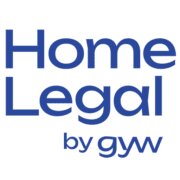Best Landlord & Tenant Lawyers in Lower Hutt
Share your needs with us, get contacted by law firms.
Free. Takes 2 min.
Free Guide to Hiring a Real Estate Lawyer
List of the best lawyers in Lower Hutt, New Zealand
About Landlord & Tenant Law in Lower Hutt, New Zealand
Landlord & Tenant law in Lower Hutt, New Zealand governs the rights and responsibilities of both landlords and tenants in rental agreements. It addresses issues such as rent payments, property maintenance, eviction procedures, and dispute resolution.
Why You May Need a Lawyer
You may need a lawyer for various reasons related to Landlord & Tenant law, such as drafting or reviewing rental agreements, resolving disputes over security deposits, dealing with eviction proceedings, or seeking legal representation in court.
Local Laws Overview
In Lower Hutt, New Zealand, landlords are required to provide rental properties that meet certain health and safety standards. Tenants have the right to privacy, quiet enjoyment of the property, and proper notice before any changes to the tenancy agreement. Disputes between landlords and tenants are typically resolved through the Tenancy Tribunal.
Frequently Asked Questions
Q: Can a landlord raise the rent whenever they want?
A: Landlords are required to give proper notice before raising the rent, and any increase must comply with the terms of the tenancy agreement.
Q: What can a tenant do if their rental property is in disrepair?
A: Tenants should notify their landlord in writing about any maintenance issues and give them a reasonable amount of time to address the problem. If the landlord fails to make repairs, tenants can contact the Tenancy Tribunal for assistance.
Q: How much notice does a landlord need to give before evicting a tenant?
A: The amount of notice required for eviction depends on the reason for eviction and the type of tenancy agreement. Landlords must follow the proper legal procedures for eviction.
Q: Can a tenant sublet their rental property to someone else?
A: Tenants must obtain permission from their landlord before subletting the property to another person. Subletting without permission may result in eviction.
Q: What are the responsibilities of a landlord regarding property maintenance?
A: Landlords are responsible for ensuring that the rental property meets health and safety standards. They must make necessary repairs in a timely manner and keep the property in good condition.
Q: Can a landlord enter the rental property without permission?
A: Landlords must give proper notice before entering the rental property unless there is an emergency situation that requires immediate access.
Q: Can a landlord withhold a tenant's security deposit?
A: Landlords can only withhold a tenant's security deposit for specific reasons outlined in the tenancy agreement, such as damage to the property or unpaid rent.
Q: How long does a tenant have to move out after receiving an eviction notice?
A: The timeframe for moving out after receiving an eviction notice varies depending on the reason for eviction and the type of tenancy agreement. Tenants should seek legal advice if they receive an eviction notice.
Q: What can a tenant do if they feel they have been unfairly evicted?
A: Tenants who believe they have been unfairly evicted can seek assistance from the Tenancy Tribunal to dispute the eviction and possibly be reinstated in the rental property.
Q: Is it necessary to have a written tenancy agreement?
A: While verbal tenancy agreements are legally binding, it is recommended to have a written agreement in place to avoid misunderstandings between landlords and tenants. Written agreements provide clarity on the terms of the tenancy.
Additional Resources
For more information and assistance with Landlord & Tenant law in Lower Hutt, New Zealand, you can contact the Ministry of Business, Innovation, and Employment (MBIE) or seek guidance from a local community legal center.
Next Steps
If you require legal assistance in matters related to Landlord & Tenant in Lower Hutt, New Zealand, consider consulting with a qualified lawyer who specializes in tenancy law. They can provide you with legal advice, represent you in court proceedings, and help resolve any disputes that may arise between landlords and tenants.
Lawzana helps you find the best lawyers and law firms in Lower Hutt through a curated and pre-screened list of qualified legal professionals. Our platform offers rankings and detailed profiles of attorneys and law firms, allowing you to compare based on practice areas, including Landlord & Tenant, experience, and client feedback.
Each profile includes a description of the firm's areas of practice, client reviews, team members and partners, year of establishment, spoken languages, office locations, contact information, social media presence, and any published articles or resources. Most firms on our platform speak English and are experienced in both local and international legal matters.
Get a quote from top-rated law firms in Lower Hutt, New Zealand — quickly, securely, and without unnecessary hassle.
Disclaimer:
The information provided on this page is for general informational purposes only and does not constitute legal advice. While we strive to ensure the accuracy and relevance of the content, legal information may change over time, and interpretations of the law can vary. You should always consult with a qualified legal professional for advice specific to your situation.
We disclaim all liability for actions taken or not taken based on the content of this page. If you believe any information is incorrect or outdated, please contact us, and we will review and update it where appropriate.










